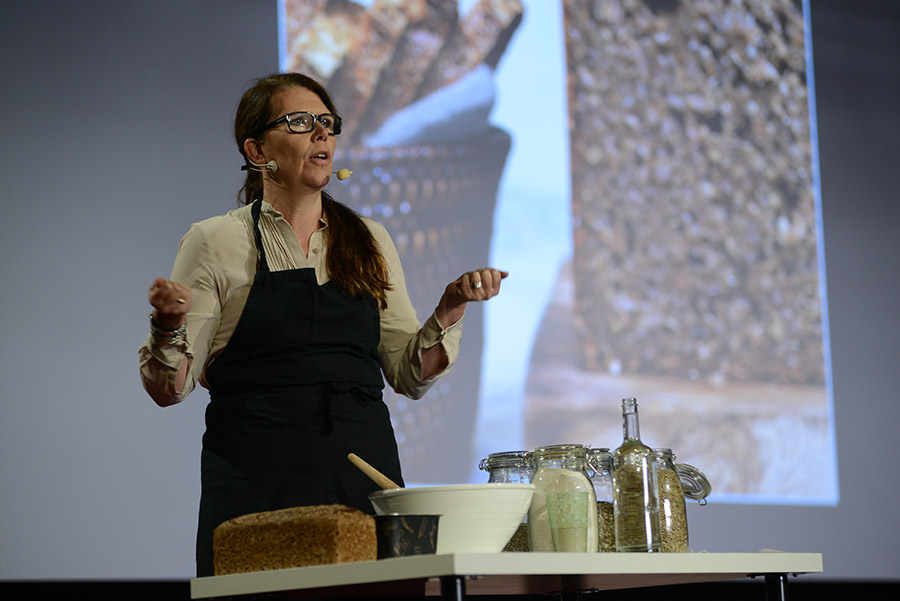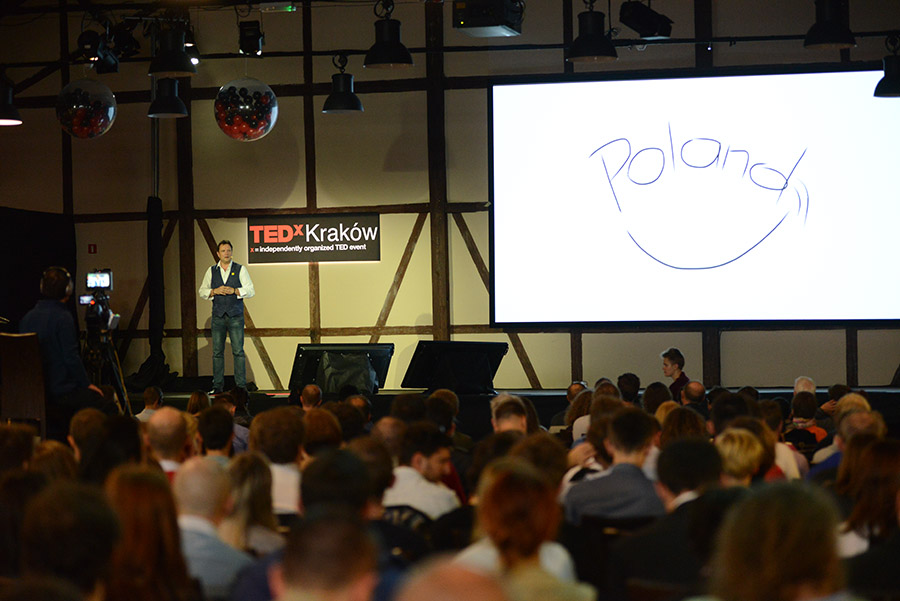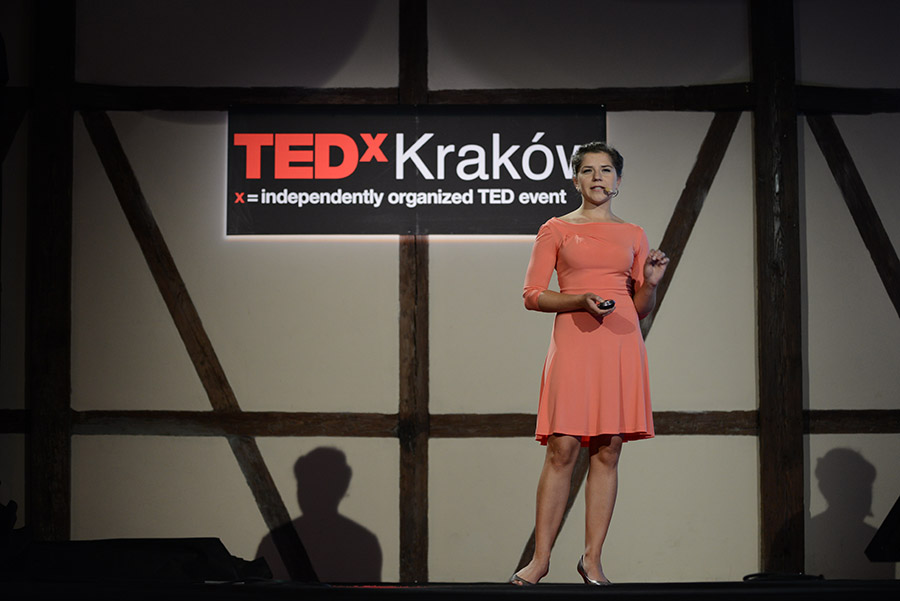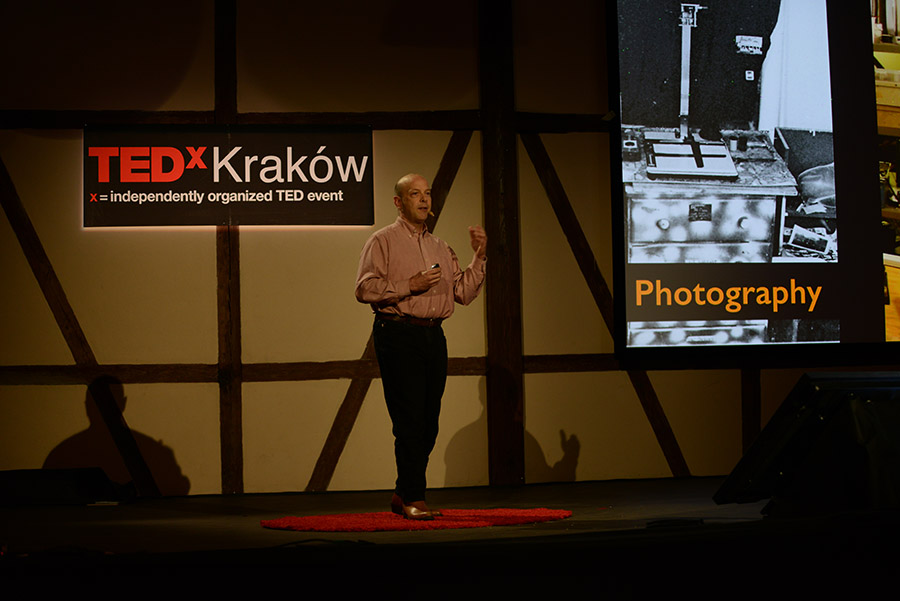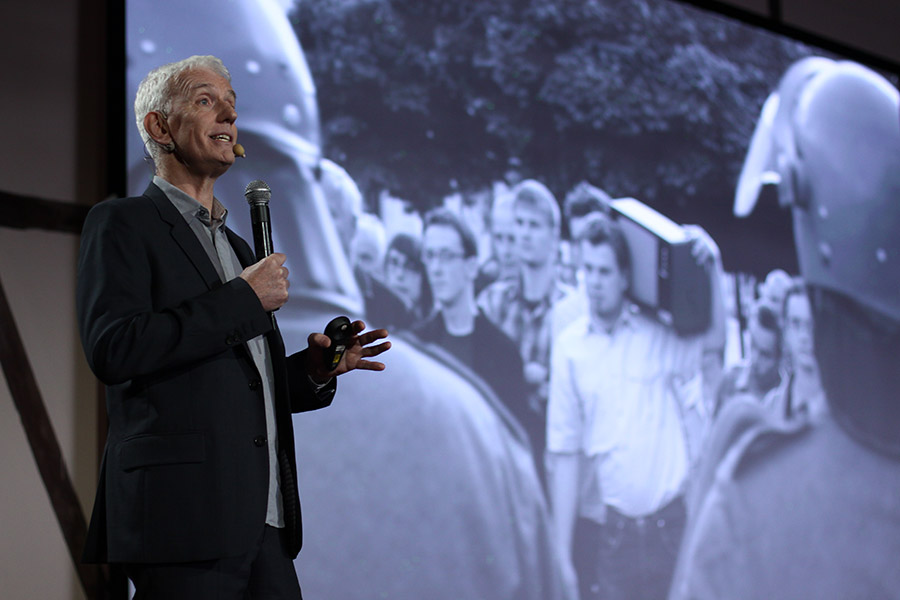Welcome to TEDxKraków 2013! We have a full spectrum of speakers that have been invited to talk and inspire all of you. We will be posting live updates, so if you are not here or are unable to watch the livestream, you can tune in to our blog and still find out what is happening at this year’s conference. It is going to be a one-of-a-kind event, so prepare to get inspired!
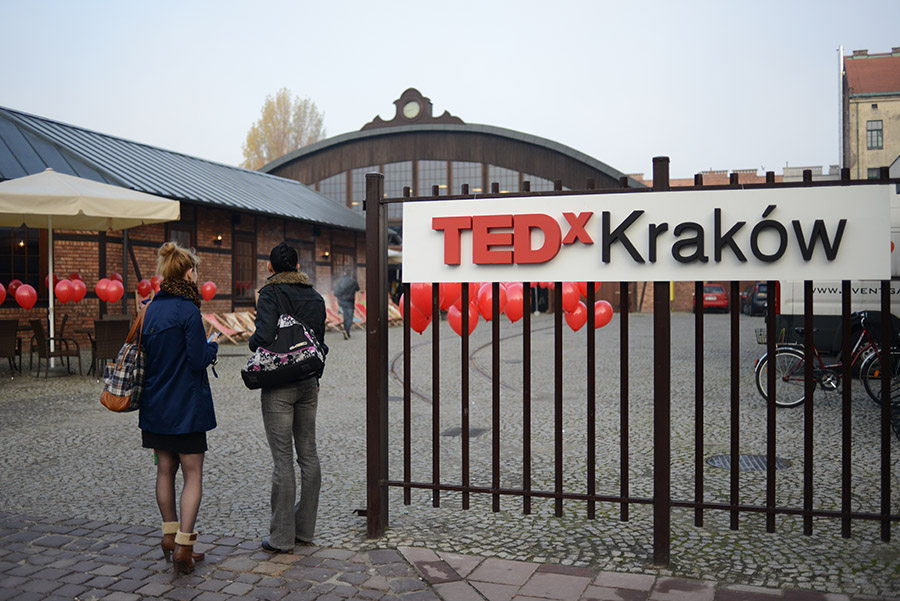
First session (9:30-11:00): Making Places
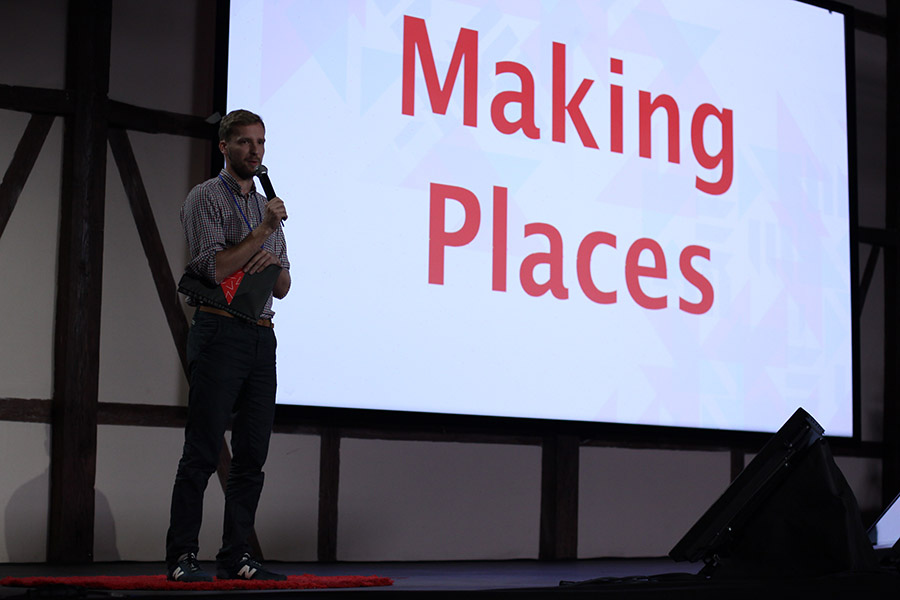
Anna Nacher is fascinated by the unofficial flow of information around a city. Information can inspire you, expand your horizons and simply make an impact. It can also encourage you to want to share it with others, which in effect creates gossip. Kraków is a city with a very special energy: time flies by slowly here despite the fact that it’s busy with new events constantly happening here. Many of them attract large crowds even though no promotion was involved. How does that happen? For example, TEDxKraków doesn’t promote itself on billboards or posters, but yet attracted over 600 people to part take in today’s conference. Anna says that is all happens because of the existence of the urban underground information movement, where information flows naturally. Cities are live organisms that have multiple centers where energy gets accumulated. We are inherently attracted by Facebook, fliers, popular groups, and popular events and join these naturally. So next time you are thinking of promoting something – think of people as groups and rather than separate by their individual demographic characteristics such as age or gender. Groups have more power!
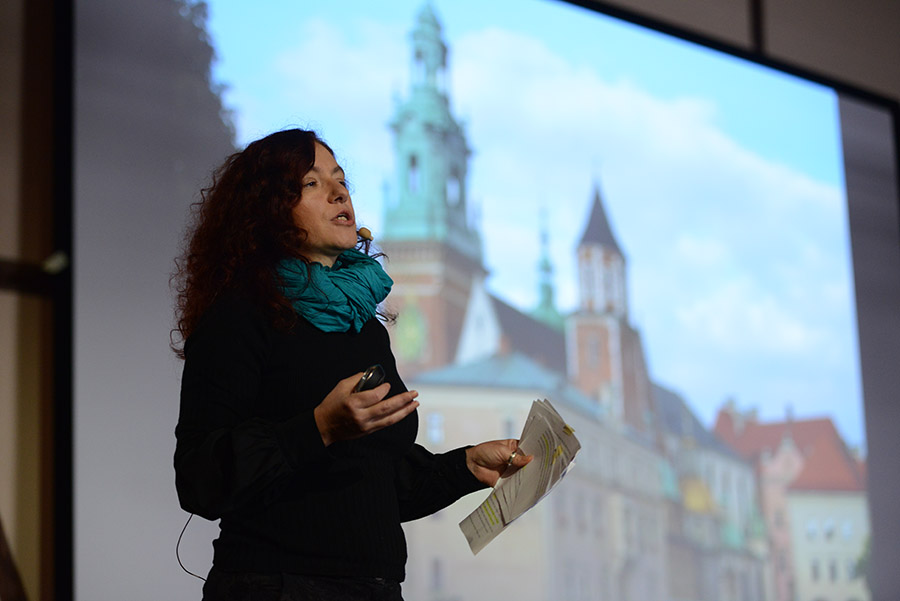
Jeroen Beekmans believes that cities are collections of ideas rather than buildings. There is a radical change going on in cities and their architecture and how we interact with all that. In Amsterdam for example, Vietnamese bars have become hubs for social interaction. Activities and soft sides of a city are as important as hard sides of a city and at times you can have great things happening in really boring places. Cities, architecture as well as human relationships are all becoming flexible. If the world is so fluid, how to you design cities to accommodate this radically changing world? The answer is that anyone can and should impact city design. Bloggers, street artists, cooks, poets and companies all are becoming city makers. You have the power to improve public bathrooms, walkways or even zebra crossings. One thing that helps make a change in a city is blogging about the cool things that happen at other cities and get inspired from those ideas and then implement them locally. Remember the large, boring billboards that used to annoy all of us? IBM came up with an idea to create billboards that positively impact a city and created some that served as sitting benches or as rain shelters, creating a new layer of excitement and building a brand directly connected to the public. There are many options and ways to create better cities and you can make an impact on that!
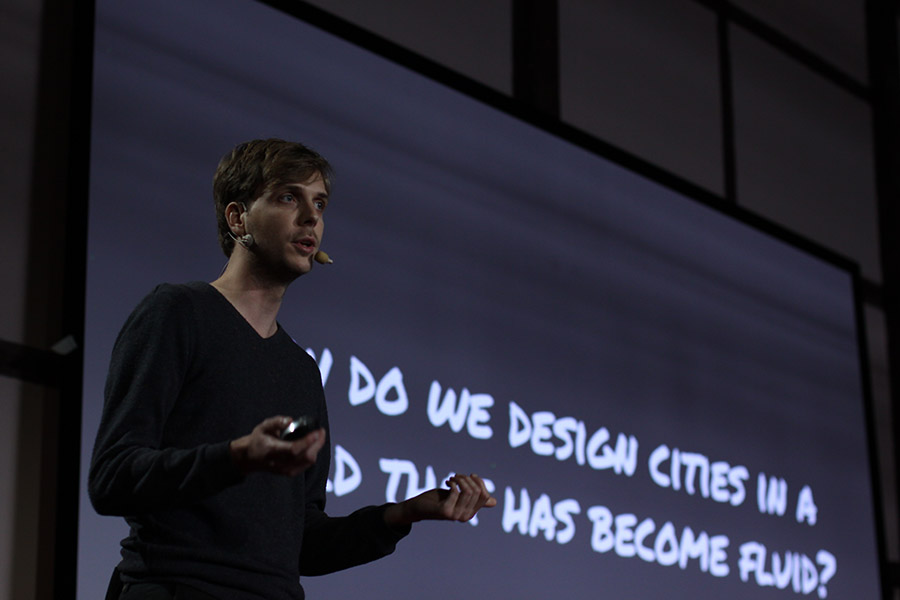
Catherine Bracy mobilized grassroots movement to create a government in the United States that would allow it to run like the internet. Technology has revolutionized the way we do things. Nowadays we rarely go to a bank to deposit a check; it all happens online. However, government is one area that has not advanced together with the rise of technology despite the fact that plenty of creative people work for it. It is just how they are structured: risk averse and not open to new ideas. Catherine works with city governments to make them better and more empowering. One project she worked on was rebuilding a website for Honolulu and what they created was a site with a search function only: simple and smart. The users could type in their questions and find exactly what they were looking for and easy to understand as the answers were written by the citizens of that city. Those people formed a citizen volunteer program for all people interested in actively shaping their government. That’s just one example, but there are others and more and more countries and cities are following this grassroot movement to creating open governments. It is crucial to our future to have open governments – the long term cost of underlying distrust lasts for a long time and is very hard to undo. Part of the Polish movement to open government, Open Malopolska, is the hackathon that is happening tonight. We encourage all interested hackers, designers and citizens to participate!
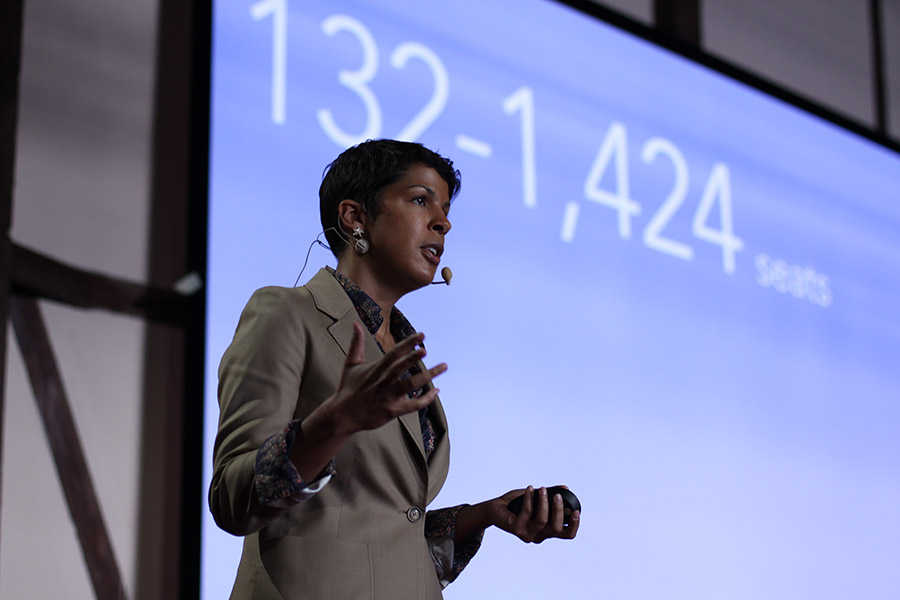
Krakowski Teatr Tańca – KTT (Cracow Dance Theatre)
We’re sure most of our audience needed time to cool down after the salacious performance by KTT. Ten dancers, all dressed in skimpy white clothing demonstrated what love making is about. Love, passion and attraction are all equal regardless of sexual interest, whether it is between two men, two women or a man and a woman.
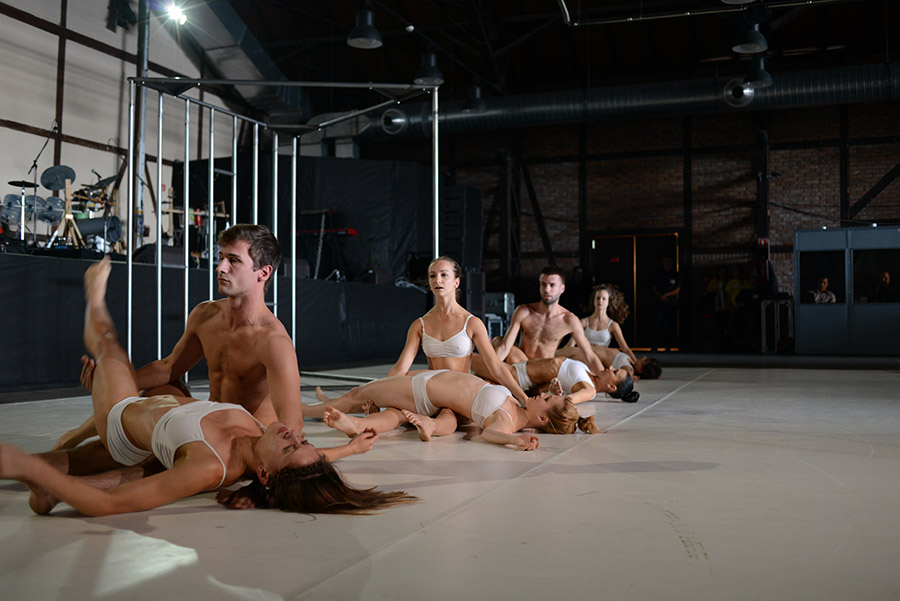
Second Session (11:45 – 13:15): Get your hands dirty
Richard Satava believes that the future is not what it used to be and with that in mind he actively rethinks healthcare. But how are new ideas generated? By doing things exactly the opposite way that they were originally done. Finding the outliers and then solving for them is key to innovation. Working for DARPA (Defense Advanced Research Projects Agency), Richard helps build robots that revolutionize the operating rooms. Having these robots in operating rooms makes the doctors turn into an information managers when operating on a patient. The possibilities of that are endless. Imagine a world where you can be operated anywhere, where combated soldiers are treated in seconds, and where chips implanted in brains help a paralyzed person control a computer or a prosthetic hand by only using his thoughts. We are already there and technologies to do that exist. Cloning and genetic engineering already impact lives of people affected with genetic diseases and can help them not pass those diseases to their newborns. Is it ethical you may ask? The decision is really up to you.
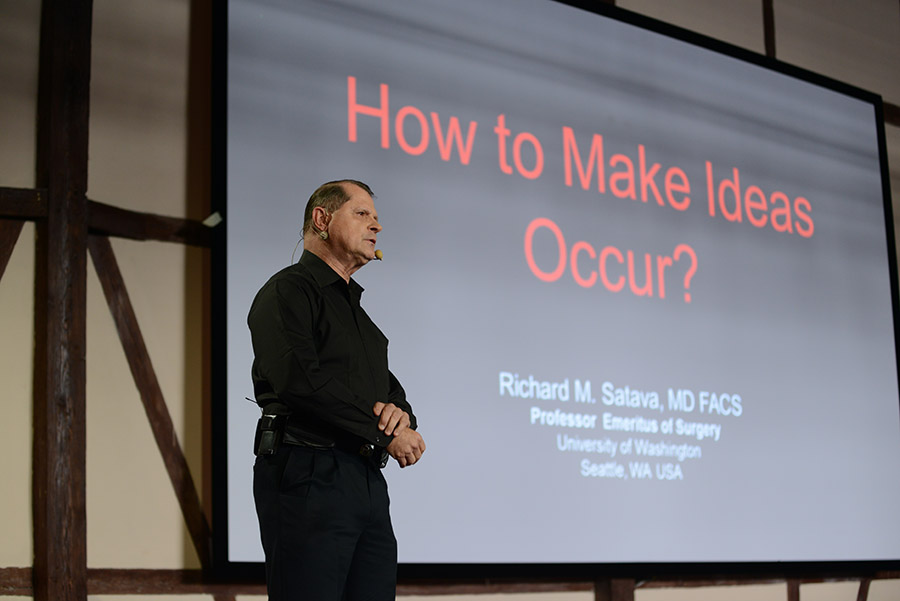
Adam Karcz knows that failure is not an option. Him and his team were invited for the NASA competition, being the only European team to advance to the finale of the 2013 NASA Lunabotics Mining Competition. However, when they got to Florida it turned out that the most important element of their presentation was not there – the robot was missing! Having only five days to rebuild a lunar excavator, a robot that is capable to extract and move a 10kg Moon rock, him and his team got right at it and tirelessly focused on making it happen. Even though the original robot took them a whole year to build, they did it! They didn’t win the competition, but the Kennedy Space Center recognized their hard work with the Perseverance Award. It’s very inspirational what people can do with great teamwork, some persistence and a belief that failure is not an option.
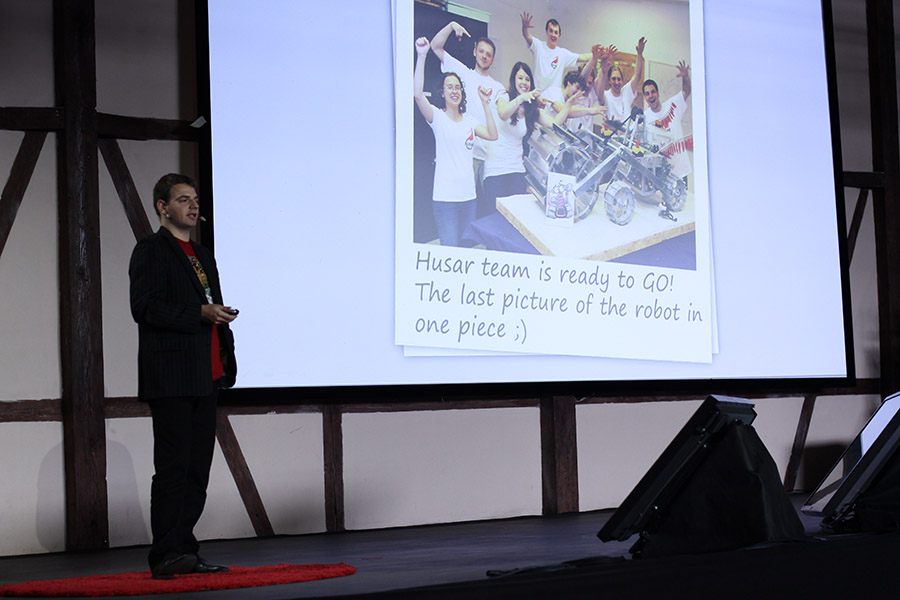
Recycling Band made rubbish sound really cool today. Who would have guessed that instruments made from recycled materials can sound so good and yet draw the attention to a global environmental issue of waste at the same time?! This band is really something! We encourage you to listen to them online and like them on Facebook to learn more about their upcoming concerts.
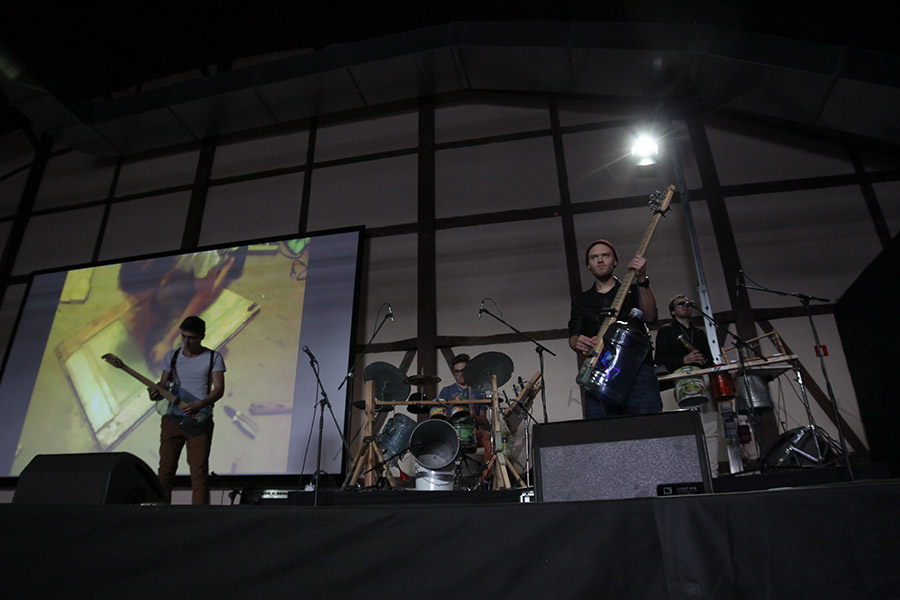
Trine Hahneman is probably the most passionate-about-rye person you will ever meet. Rye can make more than flour or bread but also some other delicious and healthy meals…plus it’s full of vitamin E! It’s traditional to Europe, although originally was brought from the Middle East. Anyone can learn how to bake bread, but to make a really good loaf is a craft. It takes trial and error to learn all the little details of how a tasty bread is made. However, she encourages everyone to try and learn this craft. Food is something that brings us together, something that builds a community. Therefore we should never give up local bakers, butchers and others that create jobs in our communities as well as form the atmosphere in our cities. Let’s face it – Facebook or Twitter does not replace the sense of community and local sense of belonging. Let’s bring it back to our cities and ensure that we make a connection with our food and the people around us…outside of social media.
